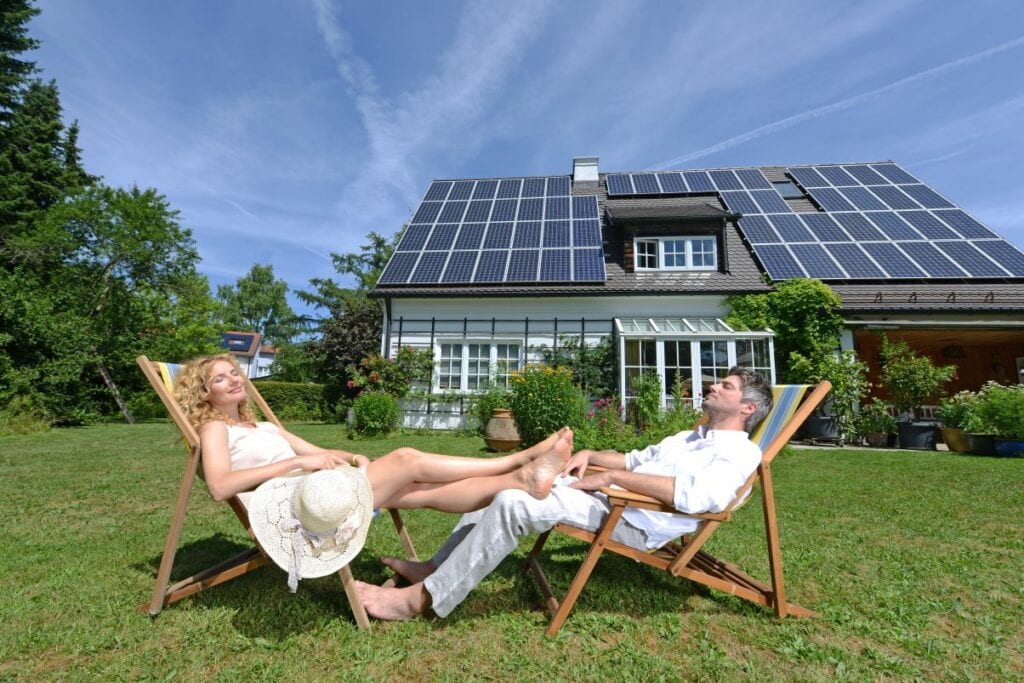
People are being urged to stay safe in the sun as soaring temperatures are set to arrive.
The weather is turning up the heat – with highs of nearly 30 degrees predicted for next week by the Met Office.
While temperatures across Cumbria have fallen to 18 and 17 degrees this week, they are set to rise over the weekend and become just shy of the dangerous temperatures forecast by the Met Office’s recent weather warnings.
Earlier this week, the Met Office extended its amber extreme heat warning for much of England and Wales, with Cumbria sat just outside of the areas of risk.
The amber warning, which has been issued for Sunday, Monday and Tuesday, says there are risks of adverse health effects for all people – not just those most vulnerable to extreme heat.
Temperatures could be in excess of 35 degrees in the South East, and more widely around 32 degrees within the warning area.
Met Office meteorologist Annie Shuttleworth said: “Outside of the warning area we are still expecting many to see very warm summer days with temperatures reaching the mid to high 20s. During the summer months we recommend people take precautions if going out in the sun.”
Advice from the Met Office includes checking in on elderly and vulnerable relatives, staying hydrated, seeking shade outdoors and staying cool when indoors by closing curtains where the sun can get in.
A spokeswoman for Public Health Cumbria added: “The weather alert message indicated that we may see some activity in respect of extreme heat warnings for the Northwest. This initial warning covers Cheshire, Greater Manchester, Merseyside and Lancashire.
“Cumbria for the time being has not been included. However, given that it is six days before the predicted extreme heat warning is scheduled to hit the North West, there is the potential that this could extend to include Cumbria.”
The NHS is urging people to take particular care during the hot spell.
Dr David Levy, chief medical director for NHS Lancashire and South Cumbria Integrated Care Board, said: “Like a lot of people I very much enjoy the sunny weather and intend on going for a nice walk this weekend, however, I will be taking precautions, like taking of plenty of water, applying high-factor sunblock and taking my phone with me in case I need to call for help.
“If you’re out and about during this heat wave and you suffer from allergies, remember to take the right medication with you and please check in on neighbours and loved ones who suffer the most from heat and pollen.”
Thousands of people each year are admitted to hospital because of heat-related ailments, including severe sunburn, heat exhaustion and sun and heat stroke, the NHS said.
Tips for staying cool during a heatwave
Home
- If it’s cooler inside than out, shut and shade your windows.
- If it’s hotter inside than out, open windows for ventilation and try to get air flowing around the home.
- If you’re vulnerable to the effects of heat or you have a pre-existing medical condition, try not to go out in direct sunlight between the hours of 11am – 3pm. However, be aware the maximum temperature on a hot summer day almost always occurs after 3pm, typically between 4pm and 5pm.
- Drink cold drinks such as water or fruit juice regularly to stay hydrated, but try to avoid tea, coffee and alcohol.
- If you’re going outside, stay in the shade, wear a hat, cool, covering clothes and apply sunscreen.
Away
On holiday or on a day out, make sure you’re prepared especially in case of being stuck in extreme temperatures in a car or train:
- Take plenty of fluids, preferably in a cool bag.
- Pack a hat for everyone and enough sunscreen (and apply regularly).
- Make sure that any available air ventilation is working.
- Take regular breaks allowing both the driver and passengers chance to move about and get some fresh air.
- If anyone remains in the car, make sure it is not for a prolonged period and ensure they have access to ventilation and fluids.
- Do not leave children unattended in a hot car.
- Do not leave pets unattended in a hot car.
Drivers have also been advised to plan ahead for the upcoming high temperatures and dazzling sunshine.
National Highways said during hot weather, drivers should ensure their engine stays within the normal temperature range and if it begins to overheat, find somewhere safe to stop and allow it to cool down.
Mel Clarke, customer service director for operations at National Highways, said: “It is always important to plan ahead for your journey and this advice is no different during periods of hot weather. Our advice is that everyone should check their vehicles, such as tyres, coolant and oil levels, before heading out.”
Drivers are also advised to take a bottle of water on their travels, leave plenty of time for journeys, check the weather forecast for their destination and check travel conditions before setting out and where it is safe to do so, during journeys.
Outdoor swimming
Swimmers are also urged not to go for a dip in the county’s reservoirs – as they are more dangerous than they look.
United Utilities, which is responsible for reservoirs including Haweswater, Thirlmere, Cogra Moss and Crummock Water, said while they may look enticing during summer months, they are extremely dangerous, with machinery at the bottom, pumps which create a strong current and steep sides.
Alaister Downie, head of health, safety and wellbeing at United Utilities, said: “Not only is swimming in reservoirs strictly prohibited, but it’s also extremely dangerous. We continue to hear of the needless deaths of people accidently drowning in open water.
“The water may look refreshing on a hot summer’s day, but it is deceptively cold. Even in the summer the water will rarely get above 11°C – colder than the water that comes out of your cold tap.
“Even strong swimmers will struggle to keep their heads above water, your body can go into shock, your heart will be working overtime to pump blood to your internal organs, and you’ll lose control of your muscles.
“This is a hugely important message that needs to be spread far and wide. Cumbria is lucky to have so many beauty spots, but the dangers of swimming in cold water are significant and there should be no excuses. Go and walk your dog, enjoy a picnic or a ramble – just don’t go in the water!”








